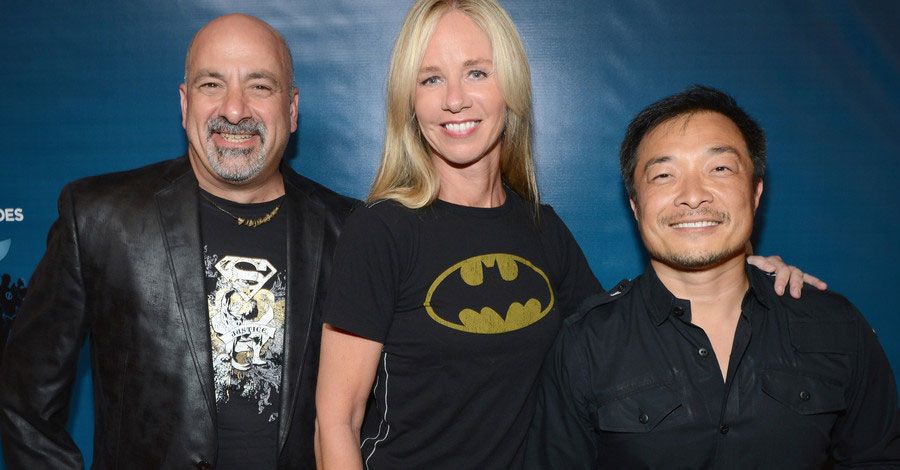It's not uncommon to hear Marvel Studios or Marvel Television executives say "it's all connected," referring to the storyline continuity between the two mediums. That's not the case across the various DC Entertain projectsment, however, and in a new interview, President of DC Entertainment Diane Nelson (who also holds the titles of President of WB Consumer Products and President-Chief Content Officer of Warner Bros. Interactive Entertainment) said she has every intention on keeping TV and film separated.
In the Variety interview, Nelson says that were Warner Bros. to attempt to emulate a Marvel Cinematic Universe-esque landscape, it "could end up handcuffing our creators into trying to work with the same storyline or force them to hold back characters or introduce certain characters. Ultimately it hinders the ability for someone like (showrunner) Bruno Heller to come in and create 'Gotham.'" As noted, in the article, "Gotham," despite being a Batman prequel series featuring Bruce Wayne and many characters from the mythos, has no creative connection to 2016's "Batman v Superman: Dawn of Justice," or any Batman-related film plans.
Admitting that Marvel's one-universe strategy "has worked beautifully," Nelson is firm in the stance that it isn't viable for DC and Warner Bros. The article also shared some impressive statistics: That DC-related merchandise has generated $8 billion in consumer products sales, and $3 billion in home video sales; and that DC-based video game hits like the "Batman: Arkham" series of games comprise around 50 percent of Warner Bros. Interactive Entertainment's business.
The publishing side of DC also received praise from Nelson, who called DC Comics "the foundation of the (DC) business," and dubbed the reboot that started in September 2011 with the dawn of The New 52 "hugely successful." Answering the common question if the clamor for comic book-based movies may eventually flame out, Nelson said, "We do believe we're in a period time where comics and superheroes are really the driving force within pop culture. We have to be really sensitive to making sure were not creating any stories that don't feel like they're ready to be told."

